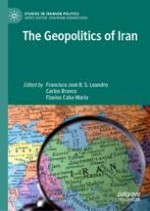2021 | OriginalPaper | Buchkapitel
The U.S. Factor in Iran’s Geostrategic and Foreign Policy Calculations
verfasst von : Mehran Haghirian, Younes Zangiabadi
Erschienen in: The Geopolitics of Iran
Verlag: Springer Singapore
Aktivieren Sie unsere intelligente Suche, um passende Fachinhalte oder Patente zu finden.
Wählen Sie Textabschnitte aus um mit Künstlicher Intelligenz passenden Patente zu finden. powered by
Markieren Sie Textabschnitte, um KI-gestützt weitere passende Inhalte zu finden. powered by
